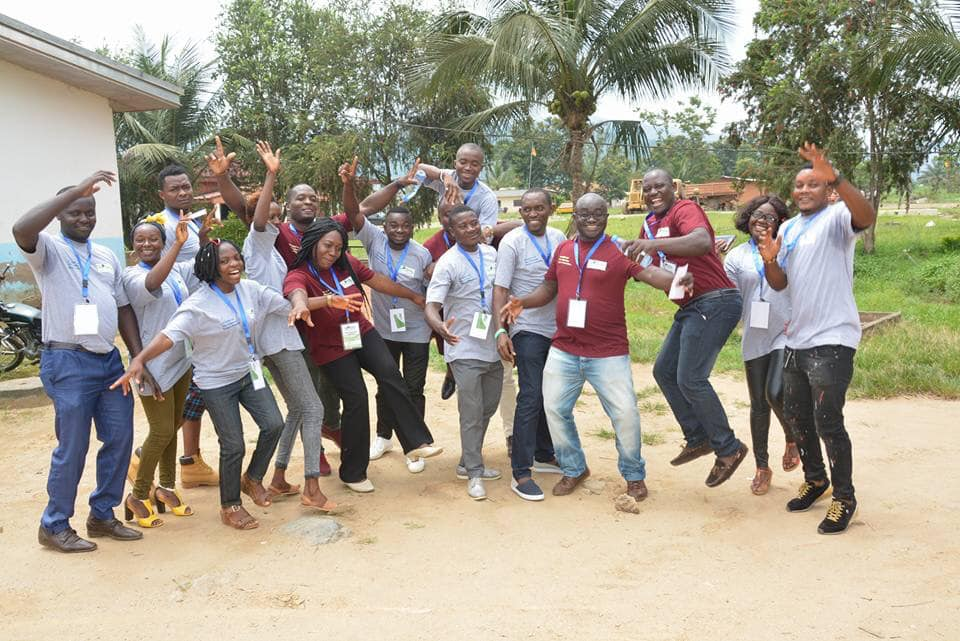Memorandum from Global Compassion
“Our Diversity Matters” in Cameroon
by Clement Awanfe Ngueto
Global Compassion is an interfaith group composed of Christian, Muslim, and various Indigenous representatives drawn from more than 200 ethnic groups and linguistic expressions in western Africa’s Cameroon. The organization, affiliated with United Religions Initiative as a cooperation circle, facilitates ethical, cultural, spiritual, and religious collaboration in Cameroon. Since its establishment in October 2012, members have facilitated numerous workshops and undertaken humanitarian actions supporting peacebuilding in the world. Long-term, Global Compassion’s purpose is “to build a peaceful world following the Millennium Goals of the United Nations.” Earlier this year, Global Compassion launched its newest project: “Our Diversity Matters.”
** ** **
Memorandum from Global Compassion
to Joseph Dion Ngute, Prime Minister of Cameroon
“Our Tips for a Successful National Dialogue”
Santchou, Cameroon,
September 23, 2019
Our ongoing peace project in Cameroon is named “Our Diversity Matters .”
Following the address of the head of state to the nation on September 10, 2019, with the call for the upcoming Major National Dialogue in Cameroon, the Global Compassion team applauds this step for a sustainable peace solution for the anglophone (English speaking) crisis. [The conflict between the French-speaking citizens (80%) and English-speaking citizens (20%) has led the country to the brink of civil war.] As of this date, the conflict has caused more than 600,000 internally displaced people (IDPs), more than 45,000 refugees, more than 1,500 people killed by guns, and children and youth kept away from school for three years. The dialogue is the best option, but needs to be well organized for the peace we seek in Cameroon.
Global Compassion young leaders – Photo: Global Compassion, all rights reserved
Global Compassion has been helping to build sustainable peace in Cameroon by fighting against violent extremism. Young, radicalized people are major actors in this conflict, perpetrating violence, including killings, with the state army. Our ongoing project, “Our Diversity Matters,” which started in January 2019, has been saving young people through education that highlights our cultural diversity as a strength. We have trained 15 young people (females and males) on peace values and tips on creating dialogue for peace. They were from six regions of the country, including the northwest and southwest, and our project has reached up to 10,000 youths within the country. Those young peace leaders are taking actions daily in their various communities to save other youth from extremism by educating them with peace values. Through our projects and actions for peace, we hope to reduce considerably the increasing violent extremism of the youth in Cameroon.
The Respect of the 10 Dialogue Principles
Each dialogue session involves a mediator, belligerents/parties, ground rules and topics to be discussed. Nothing related to the conflict should be hidden. To make it successful, the mediator and other parties should follow 10 dialogue principles:
Establish a safe space where the dialogue will be held.
Agree that the main purpose of the dialogue is learning.
Use appropriate communication skills.
Set and agree on the ground rules.
Take risks, enable feelings to surface, and confront perceptions.
The relationships come first.
Address the hard questions and gradually resolve them.
Do not quit or avoid difficult issues.
Be open to having your attitudes and opinions changed.
Bring changes to others.
The Mediator Should Be Neutral
Awanfe Ngueto teaching children about peace and dialogue – Photo: Global Compassion
Facebook
The choice of the mediator is crucial to any successful dialogue. For the Major National Dialogue announced, the mediators should be chosen from civil society leaders or religious leaders with the involvement of all the belligerents (direct and indirect actors of the conflict). Clement Awanfe Ngueto, Global Compassion’s president, is a peacebuilding consultant and can join one of the dialogue sessions as mediator at your convenience.
A Ceasefire Must Be Implemented.
The killings, kidnappings, and violence taking place in the northwest and southwest regions are totally unacceptable. We call on both parties to implement the ceasefire, giving freedom to people living in those regions. The ceasefire is the major key to the way out of the
conflict and the end of the atrocities.
The Return of Refugees and Internally Displaced People (IDPs)
After the conflict is over, the government should facilitate the return of refugees in Nigeria, as well as internally displaced people, to their home villages in Cameroon. This is the first time this type of humanitarian crisis has occurred since Cameroon's independence, and it needs to have a special response. The UNHCR and civil society leaders should be highly involved in the process of bringing our citizens home.
The Reconstruction of Infrastructure Damaged by the Conflict
Water project, Implemented between May-June 2018 at Bamia village in Santchou; West region of Cameroon – Photo: Global Compassion, all rights reserved
Cameroon’s government, the United Nations, and other international organizations should invest in the reconstruction of houses and other infrastructure damaged by weapons and fire. Priority should be given to hospitals and schools to quickly give access to health care and education to children affected by this conflict.
The Cameroon government should allocate a special emergency budget and assign a special committee to pilot the program. This committee should consist of government officials, civil society leaders and religious leaders to monitor and evaluate the effectiveness.
Conclusion
Through this memorandum, Global Compassion would like to express appreciation for this initiative and call on all parties to join the dialogue for the peaceful country we are looking to build. We must give equal access to all by respecting our cultural diversity, which is our strength. All parties should also respect human rights and human dignity for social justice.
Justice and reconciliation should follow the dialogue, both to give hope to Cameroonians and to improve our country’s image in the eyes of the international community.
Header Photo: Global Compassion Facebook





